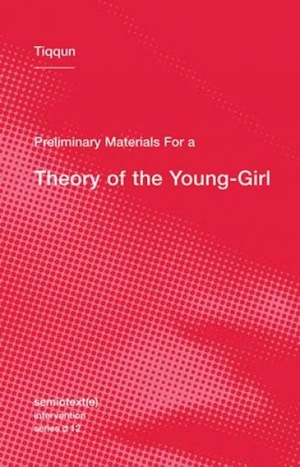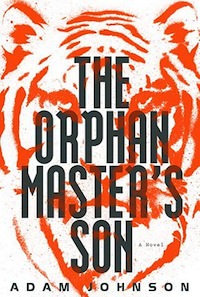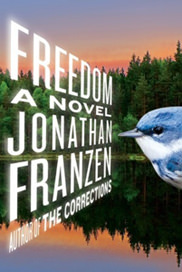|
To see long excerpts from “Preliminary Materials For a Theory of the Young-Girl” at Google Books, click here.
|
“Preliminary Materials For a Theory of the Young-Girl”
A book by Tiqqun“The mission she has been given is to re-enchant a devastated world of commodities, of prolonging the disaster with joy and insouciance.” — Tiqqun
The first TV commercial in which I had a starring role was for Mattel’s Free-Moving Barbie. Barbie had a swivel waist and a lever that popped down from her back so you could hold her straight but turn her upper torso from side to side. I swiveled her and cooed, “Barbie, you’re beautiful.”
It sounds glamorous — and I was able to put myself through college thanks to many TV spots — but the memory turns my gut. Blond with a helpful smile, I was packaged as the perfect specimen of American girlhood. I wasn’t allowed to be anything else. Who was I, really? I knew only the marketing of myself.
That girl is, to some degree, all of us. A slim, shattering, lipstick-pink book called “Preliminary Materials For a Theory of the Young-Girl” shows us the “Young-Girl” in everyone in consumer society — experiencing ourselves almost entirely as commodities to be valorized and marketed. The book was published in France in 1999 and translated and published in English in 2012. The author is Tiqqun, a collective.
There’s an oft-quoted Kafka line that a book must be the ax for the frozen sea inside us. This book is an ax. Most of it is a collection of statements, set in different fonts, that reveal the way of being that is the Young-Girl: “obviously not a gendered concept.” (All italics are Tiqqun’s, which likes them.) Some of the statements are exclamations in the Young-Girl’s voice; most are analysis.
Except for the exclamations, which are dark with a lack of ironic self-awareness — “Because I’m worth it!” “My boyfriend’s a poet” “Be yourself! (It pays.)” — the text is dense, the usual semiotics style. The book starts with an essay that defines the Young-Girl as “the new physiognomy of Capital” who “no longer has any intimacy with herself except as value, and whose every activity, in every detail, is directed to self-valorization.”
Some bits to chew on:
• “The Young-Girl wears the mask of her face.”
• “The Young-Girl is obsessed with authenticity because it’s a lie.”
• “There is something professional about everything the Young-Girl does.”
• “When the Young-Girl giggles, she’s working.”
• “Why must the Young-Girl always feign some activity or other? To remain unassailable in her passivity.”
• “The Young-Girl is never simply sad, she is also sad that she’s sad.”
• “The Young-Girl is optimistic, thrilled, positive, happy, enthusiastic, joyful; in other words, she suffers.”
Why can’t she snap out of herself? Gear up for this one:
“There is nothing in the Young-Girl’s life, even in the deepest zones of her intimacy, that escapes alienated reflexivity, that escapes the codifications and the gaze of the Spectacle. This intimacy strewn with commodities yields entirely to advertising, and is entirely socialized as intimacy, which is to say that she is part-for-part subject to a fallacious commonality that does not allow her to express herself.”
“Preliminary Materials For a Theory of the Young-Girl” is thin on explaining how or why this inescapable self-commodification took root. It assumes that the reader is familiar with Marxist and anarchist concepts. A single paragraph says that from the early 1920s and faced with a challenge from socialism, capitalism had to “colonize everything that is beyond the strict sphere of production” to survive — to likewise “socialize.”
But explanations aren’t the point of this book. Rather, it presents the Young-Girl as a character for us to identify with. We see her in society and are brought into her inner life, such as it is (and it’s there, just not accessible to her). She endures a hidden anguish “when she is shut away at home, far from any gaze,” and “sobs and sobs. For she who is gnawed by nothingness, this anguish is the other name for the solitude, the silence, and dissimulation that are her metaphysical condition, which she has such a hard time getting used to.”
I can’t help recalling the opposite experience as articulated by black feminist lesbian poet Audre Lorde in her classic essay “Uses of the Erotic: The Erotic as Power” in “Sister Outsider.” The erotic — not synonymous here with the sexual — “lies in a deeply female and spiritual plane, firmly rooted in the power of our unexpressed or unrecognized feeling,” and allows us “to demand from ourselves and from our life-pursuits that they feel in accordance with that joy which we know ourselves to be capable of.” Lorde notes, “Of course, women so empowered are dangerous.”
But for the Young-Girl, her image “possesses her, in the full sense of the word. The Young-Girl lives under the tyranny of this ungrateful master.”
You may have spotted a new incarnation of the Young-Girl at Whole Foods and at the yoga studio: the “organic Young-Girl,” a “qualitative jump” over “the industrial Young-Girl.” The organic version is “responsible, ecological, ‘in solidarity,’ maternal, reasonable, ‘natural,’ respectful, more self-controlled than falsely liberated, in a word, fiendishly biopolitical.”I don’t know if you feel devastated reading these words, or vindicated, indignant, or what. Maybe you feel dismissive of Young-Girls wealthy enough to have the luxury to build themselves gilded prisons (with responsibly sourced gold) — though Young-Girlization has metastasized through social sectors.
Having been a Young-Girl, this book flays me open in a way I long for. It is both ruthless and compassionate. “To annihilate the nothingness” is Tiqqun’s mission, as expressed in a photocopied collection available at anarchist bookstores.
To go back to the girl I know best:
I recall again the casting office. I’m 12. Breasts like little mosquito bites swell on my chest. More than anything, I need to be wanted. I need to make up for the problem of having been born.
The other Young-Girls in the room are flawless. I am sickeningly real; I have to not be real. My mother daubs gloss on my lips, slaps my cheeks for color, whispers, “Big eyes!” so I force open my expression, look perky, happy, the perfect purveyor of product. I am product. The casting director calls my name and I leap forward, heart pounding.
Inside, I line up on the scrap of duct tape on the floor. I do a run-through of the script, this time for Golden Grahams cereal. Inside I begin my secret journey, my respite: visualizing myself as a tiny black ball shrinking to a place beneath my sternum. With each of my smiles the ball grows smaller, tighter, darker.
Rolling! Crack: The slate claps down. I look slightly off camera to my (illusory) friends. Call out to them, “It’s a golden day!” Smile radiantly at the sunshine, at my many friends. Pour the cereal using the empty box provided, the front always facing the camera. Smile, laugh, dig the fake spoon into the fake bowl, eat air, take big satisfying bites of emptiness. Look directly into the camera and say, “Crunchy!” Later: “Crispy!” Good, try again. Maybe as if with an exclamation point! Or how about like a statement. Next time, a discovery. Big eyes! Yes.
“Yes, with conviction!” The director commands.
Conviction. I can do conviction. The eyes of the director are raking me up and down. I smile more brightly. What can I do better?
The little ball of life is plummeting inside my chest to a place where no one will ever find it. It’s a relief to disappear.
To dis-appear: Today, when society urges people to market themselves to exhaustion, what a radical act it can be, and what a relief, to refuse.
What might Tiqqun say about how I’ve revealed my experience with TV commercials? “The Young-Girl is happy to speak of her childhood with emotion, in order to give the impression that she has not gotten over it, that at bottom, she is still naive. Like all whores, she dreams of candor. But unlike whores, she insists that we believe her, and that we believe her sincerely.”
I do insist. Believe in me, and I will believe in you. We have to start somewhere.




You need to be a supporter to comment.
There are currently no responses to this article.
Be the first to respond.